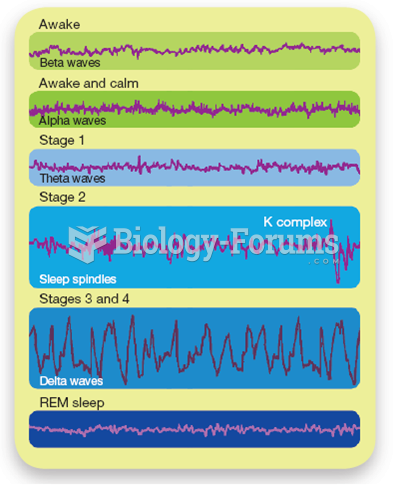|
|
|
The average person is easily confused by the terms pharmaceutics and pharmacology, thinking they are one and the same. Whereas pharmaceutics is the science of preparing and dispensing drugs (otherwise known as the science of pharmacy), pharmacology is the study of medications.
More than 150,000 Americans killed by cardiovascular disease are younger than the age of 65 years.
About 600,000 particles of skin are shed every hour by each human. If you live to age 70 years, you have shed 105 pounds of dead skin.
A cataract is a clouding of the eyes' natural lens. As we age, some clouding of the lens may occur. The first sign of a cataract is usually blurry vision. Although glasses and other visual aids may at first help a person with cataracts, surgery may become inevitable. Cataract surgery is very successful in restoring vision, and it is the most frequently performed surgery in the United States.
Vaccines prevent between 2.5 and 4 million deaths every year.
 Organisms exhibit a diversity of behaviours, which include (clockwise from upper left), foraging and
Organisms exhibit a diversity of behaviours, which include (clockwise from upper left), foraging and
 Organisms exhibit a diversity of behaviours, which include (clockwise from upper left), foraging and
Organisms exhibit a diversity of behaviours, which include (clockwise from upper left), foraging and
 Two wells are filled with related or partially identical antigens. The well on the left contains an ...
Two wells are filled with related or partially identical antigens. The well on the left contains an ...




